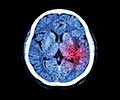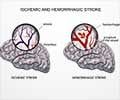Frequently Asked Questions
1. Which Doctor to visit if I have a brain hemorrhage?If you suspect you have a brain hemorrhage or experience symptoms such as severe headache, confusion, weakness, or difficulty speaking, seek immediate medical attention. A neurologist or neurosurgeon specializes in diagnosing and treating brain hemorrhages and related conditions.
2. What is the brain hemorrhage survival rate?
The survival rate for brain hemorrhage depends on various factors, including the size, location, and severity of the bleed, as well as the individual's overall health condition. Prompt medical intervention and appropriate treatment can improve the chances of survival.
3. Is brain hemorrhage death painful?
While experiences of pain may vary, brain hemorrhage can lead to severe complications and neurological deficits. Seeking timely medical care is crucial to minimize pain and discomfort and improve outcomes.
4. What is the brain hemorrhage recovery time?
The recovery time for brain hemorrhage varies widely depending on factors such as the extent of the hemorrhage, the area of the brain affected, the individual's overall health, and the effectiveness of treatment. Recovery may involve weeks to months of rehabilitation and medical care.
5. What is head trauma and its relation to brain hemorrhage?
Head trauma, such as a severe blow or injury to the head, can lead to traumatic brain injury (TBI) and increase the risk of brain hemorrhage. It's essential to seek immediate medical attention for any head injury, especially if symptoms of brain hemorrhage develop.
6. What medical care is needed for brain hemorrhage?
Medical care for brain hemorrhage may include emergency treatment to stabilize the patient, imaging tests such as CT scans or MRIs to diagnose the extent of the bleeding, and interventions such as surgery or medication to manage the hemorrhage and prevent complications.
7. What are the side effects of brain hemorrhage?
Side effects of brain hemorrhage may include neurological deficits such as weakness, numbness, speech difficulties, cognitive impairments, and changes in mood or behavior. Rehabilitation and supportive care are often needed to address these effects.
8. What is the area of the brain affected by hemorrhage?
The area of the brain affected by hemorrhage depends on the location of the bleeding within the brain tissue or surrounding structures. Different areas of the brain control various functions, so symptoms may vary based on the affected region.
9. What are epidural hematomas and their significance?
Epidural hematomas are a type of extra-axial hemorrhage characterized by bleeding between the skull and the dura mater. They require immediate medical attention due to the risk of increasing pressure on the brain.
10. When is medical attention for brain hemorrhage considered high risk?
Medical attention for brain hemorrhage is considered high risk when symptoms such as sudden onset of severe headache, loss of consciousness, seizures, or neurological deficits are present. In such cases, calling 911 or seeking emergency medical care is essential to prevent further complications.
11. What imaging tests are used to diagnose brain hemorrhage?
Imaging tests such as CT scans and MRIs are commonly used to diagnose brain hemorrhage and determine the extent and location of the bleeding. These tests help healthcare providers make informed decisions regarding treatment and management.
12. What type of bleed is associated with brain hemorrhage?
Brain hemorrhage can involve various types of bleeds, including intra-axial hemorrhages such as intracerebral hemorrhage and subarachnoid hemorrhage, as well as extra-axial hemorrhages like epidural and subdural hematomas. Each type of bleed requires specific management and treatment approaches.











